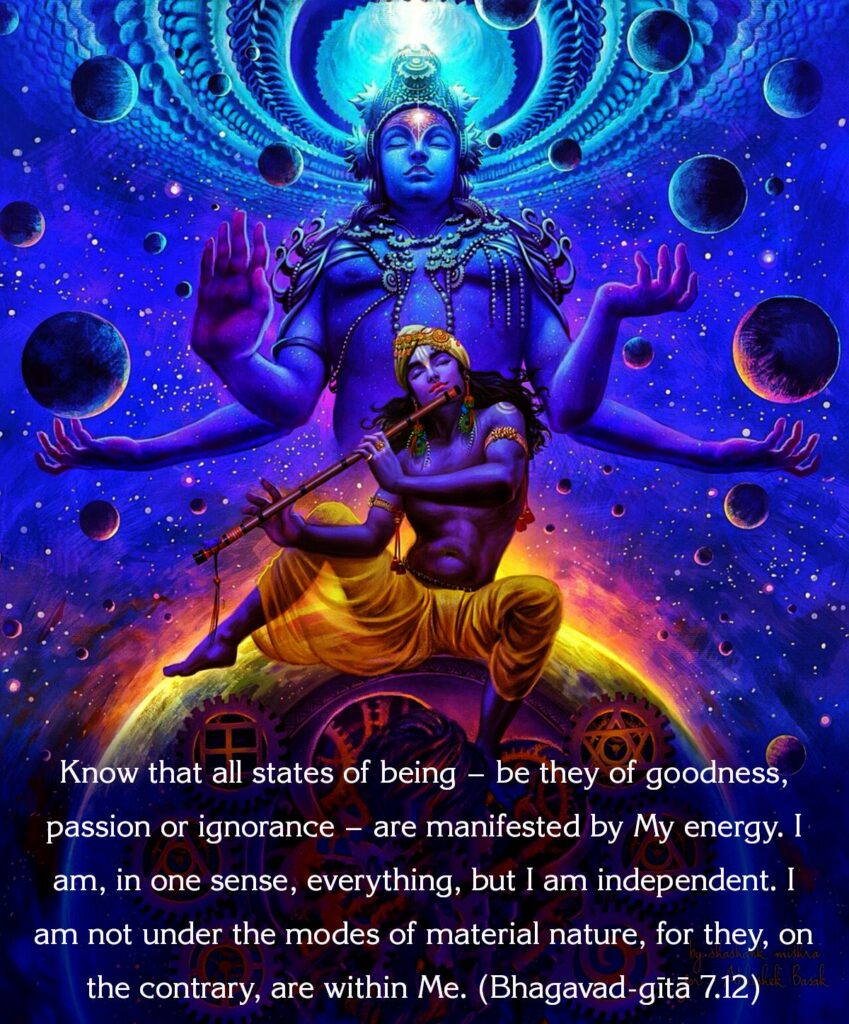ये चैव सात्त्विका भावा राजसास्तामसाश्च ये |
मत्त एवेति तान्विद्धि न त्वहं तेषु ते मयि || 12||
ye chaiva sāttvikā bhāvā rājasās tāmasāśh cha ye
matta eveti tān viddhi na tvahaṁ teṣhu te mayi
ye—whatever; cha—and; eva—certainly; sāttvikāḥ—in the mode of goodness; bhāvāḥ—states of material existence; rājasāḥ—in the mode of passion; tāmasāḥ—in the mode of ignorance; cha—and; ye—whatever; mattaḥ—from me; eva—certainly; iti—thus; tān—those; viddhi—know; na—not; tu—but; aham—I; teṣhu—in them; te—they; mayi—in me
Translation:
And whatever things there be— of the nature of sattva, rajas, and tamas— know they are all from Me alone. I am not, however, in them; they are in Me.
Commentary:
The Lord has already declared that He is the sustaining power behind the universe. What is sustained cannot be without the power that sustains it. So the existence of Paramatma makes the existence of everything possible. Minus Paramatma, nothing can exist. The universe as we see it with all its panoramic changes is the creative power of the Lord. In the same way as the snake in the rope is sustained by the rope itself, the Lord is the cause of the illusory universe, and just as the rope is really a rope even during the time of one’s illusion, so also the Lord is Himself of the universe whether one realises it or not. Just as the snake depends upon the rope, and the rope does not depend upon the snake, so also all beings are dependent upon the Lord, but the Lord is not dependent on them. The wave depends on the ocean, but the ocean does not depend on the wave.
When the Lord says that all the qualities (sattva, rajas, tamas) are caused by Him, it is certainly not to encourage tamasic or temperments. or rajasic temperments. The point to note is that the Lord is the final cause of all that exists as objects or qualities.
Bhagavad Gita: Chapter 7 🔻 (30 Verses)
